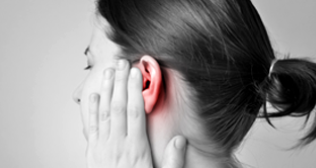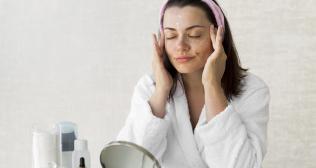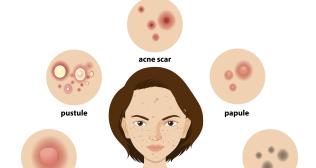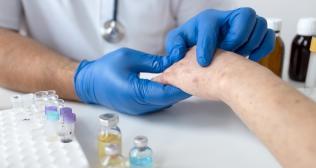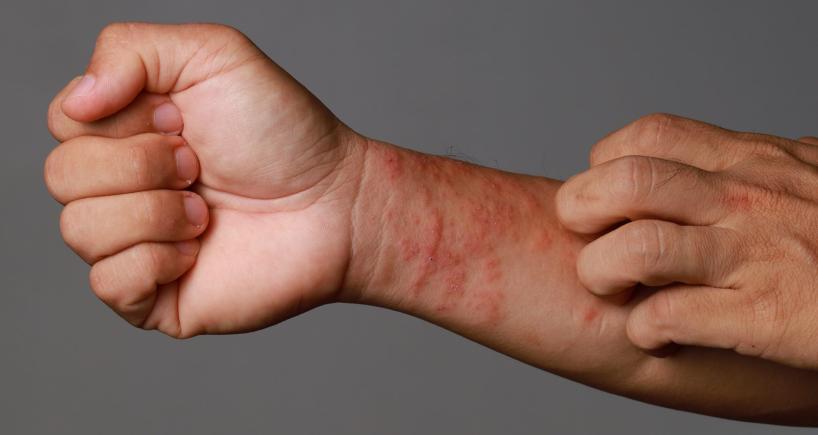
Demystifying Eczema: Symptoms, Causes, Types, and Treatments
Eczema can be frustrating and uncomfortable, understanding the condition can help you manage it effectively. Let us demystify eczema and its causes, symptoms, types and treatments.
Are you wondering why you have eczema?
It is a complex disease that has no single cause. Still, it is believed to have something to do with genes that are transferred from parents to children and the environment in general.
- Genetics: People whose relatives had eczemas are more likely to get this illness than others who do not come from such families.
- Immune system: In people with eczema, their immune systems are just too active such that they respond to stimuli causing inflammation in their bodies.
- Skin barrier: These individuals have poor skin barriers, so they are likely to get eczema more easily than other people.
Environmental factors: The triggers may vary from one person to another but often include:
- Allergens: Dust mites, pollen, pet dander, mold, and food allergens.
- Irritants: Soaps, detergents, perfumes, fabrics and harsh chemicals
- Climate: Dry, cold weather can worsen eczema symptoms.
- Stress: It can aggravate emotional stress flares of eczema
Types of Eczema
There are several types of eczema which are different from each other in their characteristics:
- Atopic Dermatitis: This is the most common type of eczema that can be identified if you have itchy red and dry patches of skin on your face neck, elbow, knee, hand and many other joints
- Contact Dermatitis: It is an allergic reaction to certain products or substances that causes redness, swollenness and itchiness at specific sites wherever it comes into contact with the allergen
- Dyshidrotic Eczema: This type is characterized by small blisters filled with clear fluid which appear mostly on the palms and fingers soles.
- Nummular Eczema: This form presents scaly coin-shaped patches that itch.
- Seborrheic Dermatitis: Its signs include scaly areas on the scalp and eyebrows.
Understanding the Symptoms
The symptoms of eczema can vary greatly in different people but typically, there are:
- Itching: This may be constant, or it may come and go in between
- Redness: The skin is red, inflamed and swollen on the part afflicted
- Dryness: The skin is harsh, cracked and scaly
- Bumps and blisters: Small fluid-filled lumps or blisters found on the skin’s surface.
- Oozing and crusting: It may ooze or crust over
- Thickened skin: It can become thick and leathery
Prevalence and Outlook
Approximately, 10 to 20% of children and an estimated 2 to 5% of adults suffer from eczema. Usually, it starts in early childhood- usually between the third to sixth months after birth or even later when those who have reached five years of age are few, though it seldom starts after five years old. At times, one of the first symptoms might be a rash appearing on top of a newborn’s head called a “cradle cap,” but, this does not mean that the child will surely have Eczema. The subsequent course may differ widely in patients suffering from this disorder.
As per experts around 80% eczema case changes for the better or it disappears completely ten years after onset. Although there are some people who keep getting eczema up until they become teenagers, and some others develop it later in life
Treatment Options
Although there is no cure for eczema, the condition can be managed to reduce the symptoms and increase the patient's quality of life. The approach to treatment taken usually consists of a combination of several methods:
Moisturizers: Apply moisturizers frequently to keep the skin moist and prevent dryness.
Topical drugs: For instance, Steroid creams; antihistamines, or calcineurin inhibitors may be able to reduce inflammation and itching.
Light therapy: Applying ultraviolet rays from the sun will be beneficial for those suffering from eczema as it can help to reduce inflammation and control symptoms.
Oral medicines- Antihistamines may also be prescribed together with Immunosuppressive agents as well as Antibiotics if the condition worsens significantly.
Personal changes: Eczema flares can be prevented by steering clear of triggers, managing stress levels and adopting a healthy lifestyle.
Managing Your Eczema
Maintain a diary to track potential triggers and avoid them.
- Immediately apply moisturizer after bathing and also throughout the day.
- Hot water can dry out the skin. Hence prefer lukewarm showers.
- Avoid scratchy fabrics. Wear loose-fitting, breathable clothing
- Trimming the nails prevents scratching and infection.
- Washing too frequently can dry out the skin.
- Sun exposure can worsen eczema. Hence, protect your skin from the sun
Always consult a dermatologist who can diagnose eczema and create a personalized treatment plan. Living with eczema can be very hard indeed, but if you make sense of the condition, identify the triggers, and eventually develop effective management strategies, you can reduce quite a lot of impact from eczema in your life.
Popular Searches :
Hospitals: Cancer Hospital in Delhi | Best Heart Hospital in Delhi | Hospital in Amritsar | Hospital in Ludhiana | Hospitals in Mohali | Hospital in Faridabad | Hospitals in Gurgaon | Best Hospital in Jaipur | Hospitals in Greater Noida | Hospitals in Noida | Best Kidney Hospital in Kolkata | Best Hospital in Kolkata | Hospitals in Rajajinagar Bangalore | Hospitals in Richmond Road Bangalore | Hospitals in Nagarbhavi Bangalore | Hospital in Kalyan West | Hospitals in Mulund | Best Hospital in India | | Cardiology Hospital in India | Best Cancer Hospital in India | Best Cardiology Hospital in India | Best Oncology Hospital In India | Best Cancer Hospital in Delhi | Best Liver Transplant Hospital in India
Doctors: Dr. Rana Patir | Dr. Rajesh Benny | Dr. Rahul Bhargava | Dr. Jayant Arora | Dr. Anoop Misra | Dr. Manu Tiwari | Dr. Praveer Agarwal | Dr. Arup Ratan Dutta | Dr. Meenakshi Ahuja | Dr. Anoop Jhurani | Dr. Shivaji Basu | Dr. Subhash Jangid | Dr. Atul Mathur | Dr. Gurinder Bedi | Dr. Monika Wadhawan | Dr. Debasis Datta | Dr. Shrinivas Narayan | Dr. Praveen Gupta | Dr. Nitin Jha | Dr. Raghu Nagaraj | Dr. Ashok Seth | Dr. Sandeep Vaishya | Dr. Atul Mishra | Dr. Z S Meharwal | Dr. Ajay Bhalla | Dr. Atul Kumar Mittal | Dr. Arvind Kumar Khurana | Dr. Narayan Hulse | Dr. Samir Parikh | Dr. Amit Javed | Dr. Narayan Banerjee | Dr. Bimlesh Dhar Pandey | Dr. Arghya Chattopadhyay | Dr. G.R. Vijay Kumar | Dr Ashok Gupta | Dr. Gourdas Choudhuri | Dr. Sushrut Singh | Dr. N.C. Krishnamani | Dr. Atampreet Singh | Dr. Vivek Jawali | Dr. Sanjeev Gulati | Dr. Amite Pankaj Aggarwal | Dr. Ajay Kaul | Dr. Sunita Varma | Dr. Manoj Kumar Goel | Dr. R Muralidharan | Dr. Sushmita Roychowdhury | Dr. T.S. MAHANT | Dr. UDIPTA RAY | Dr. Aparna Jaswal | Dr. Ravul Jindal | Dr. Savyasachi Saxena | Dr. Ajay Kumar Kriplani | Dr. Nitesh Rohatgi | Dr. Anupam Jindal |
Specialties: Heart Lung Transplant | Orthopedic | Cardiology Interventional | Obstetrics & Gynaecology | Onco Radiation | Neurosurgery | Interventional Cardiology | Gastroenterologist in Jaipur | Neuro Physician | Gynecologist in Kolkata | Best Neurologist in India | Liver Transfer








